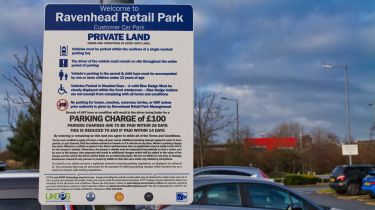New 10-minute parking fine grace period in “watered down” parking code of practice
The new industry-backed code of practice brings in a mandatory grace period but fails to reduce a cap on parking fines.

The British Parking Association (BPA) has published its new Private Parking Code of Practice, which aims to “deliver greater transparency and consistency for the benefit of motorists”.
Headlining the new code, which is the result of a collaboration between the BPA and the International Parking Community (IPC), is a new mandated 10-minute grace period before private car park operators are allowed to hand out fines (also known as Penalty Charge Notices).
The BPA says this new requirement “enhance[s] the protection of the most vulnerable” – such as those with disabilities - that may require more time to pay. However, there remains no grace period for those parking in short-stay areas, such as at airports or railway station pick-up zones.
Moreover, despite the requirement for clearer signage and the presence of an updated Appeals Charter – a list of rules that details when a fine should be cancelled or reduced – the AA has blasted the new code for failing to lower the limit on parking fines, which is currently set at £100 (or £60 if paid within 14 days).
Back in 2019, the government drew up its own code of practice which included halving the limit on fines to £50. However, the legislation was eventually withdrawn after achieving Royal Assent in 2022 due to a review into private parking fines and fees that was pending at the time.
Jack Cousens, the AA’s head of road policy, said: “This watered down ‘code of practice’ falls far short of the standards The AA, Government and consumer groups have called for across many years.”
Also missing from the code is a cap on debt recovery fees – something else that was covered by the government’s original 2019 plan – as well as legal sanctions against car parks that fail to comply.
Currently, those that don’t adhere to the BPA’s rules risk expulsion from the trade body and thus access to the DVLA’s KADOE service, which allows operators to track down vehicle keeper data and issue fines. However, there are presently no laws preventing car parks from continuing to operate after being excluded.
Cousens called on the next government to introduce its own code in order to “protect innocent drivers from the sharks running private car parks.” This was also echoed by the RAC’s head of policy, Simon Williams, who said the BPA’s code “falls miles short of what drivers have been promised by the government”.
Do you agree with the new car parking rules? Let us know your thoughts in the comments section...





